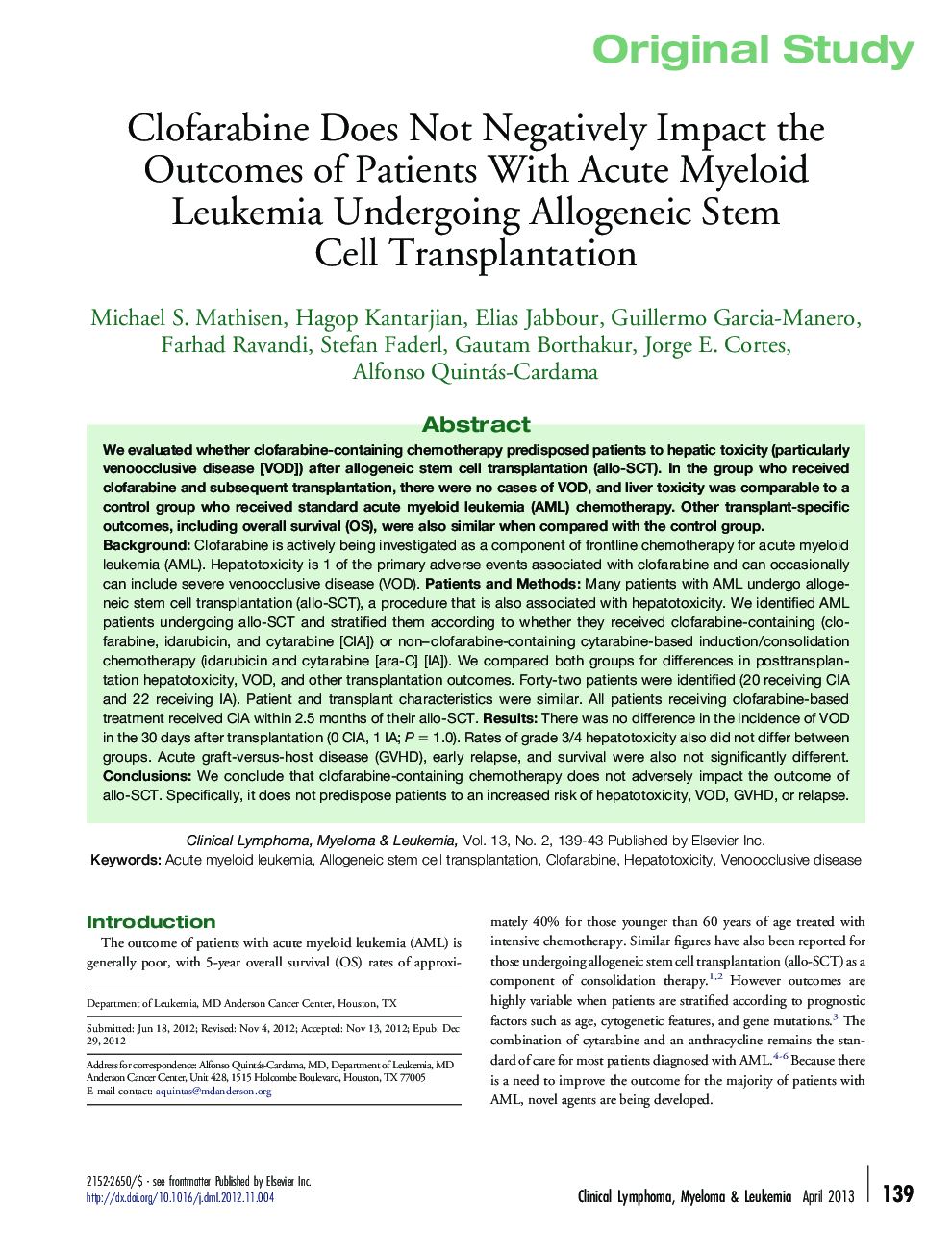| Article ID | Journal | Published Year | Pages | File Type |
|---|---|---|---|---|
| 2754580 | Clinical Lymphoma Myeloma and Leukemia | 2013 | 5 Pages |
BackgroundClofarabine is actively being investigated as a component of frontline chemotherapy for acute myeloid leukemia (AML). Hepatotoxicity is 1 of the primary adverse events associated with clofarabine and can occasionally can include severe venoocclusive disease (VOD).Patients and MethodsMany patients with AML undergo allogeneic stem cell transplantation (allo-SCT), a procedure that is also associated with hepatotoxicity. We identified AML patients undergoing allo-SCT and stratified them according to whether they received clofarabine-containing (clofarabine, idarubicin, and cytarabine [CIA]) or non–clofarabine-containing cytarabine-based induction/consolidation chemotherapy (idarubicin and cytarabine [ara-C] [IA]). We compared both groups for differences in posttransplantation hepatotoxicity, VOD, and other transplantation outcomes. Forty-two patients were identified (20 receiving CIA and 22 receiving IA). Patient and transplant characteristics were similar. All patients receiving clofarabine-based treatment received CIA within 2.5 months of their allo-SCT.ResultsThere was no difference in the incidence of VOD in the 30 days after transplantation (0 CIA, 1 IA; P = 1.0). Rates of grade 3/4 hepatotoxicity also did not differ between groups. Acute graft-versus-host disease (GVHD), early relapse, and survival were also not significantly different.ConclusionsWe conclude that clofarabine-containing chemotherapy does not adversely impact the outcome of allo-SCT. Specifically, it does not predispose patients to an increased risk of hepatotoxicity, VOD, GVHD, or relapse.
